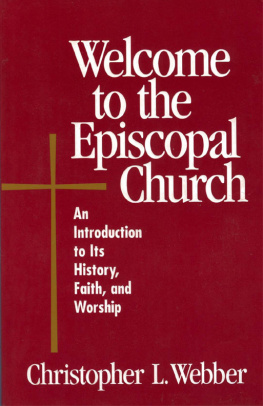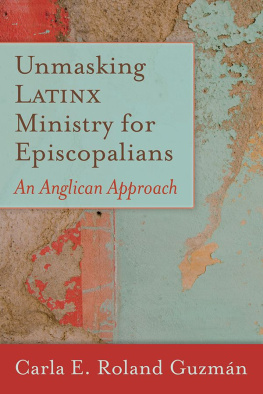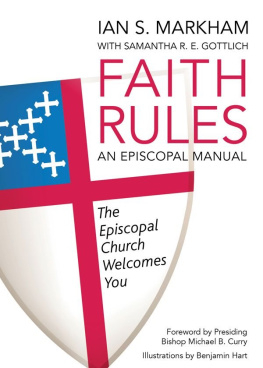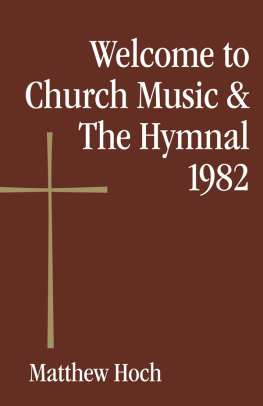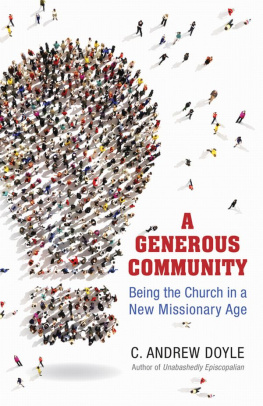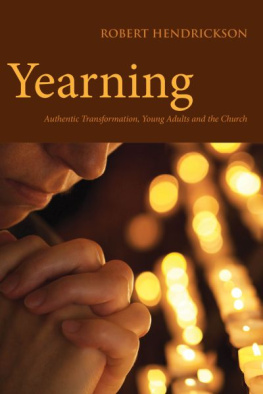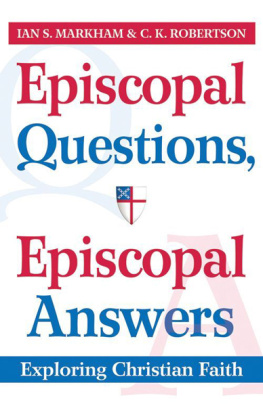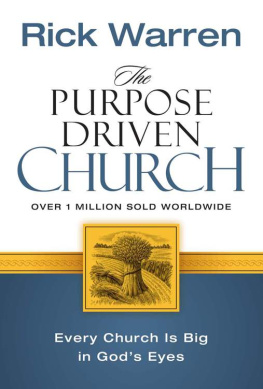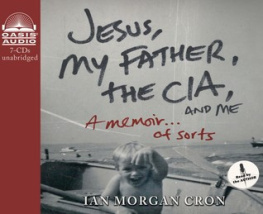BEING
CALLED,
BEING
GAY
BEING
CALLED,
BEING
GAY
Discernment for Ministry
in the Episcopal Church
Gregory L. Millikin
FOREWORD BY MARY D. GLASSPOOL
Copyright 2018 by Gregory L. Millikin
All rights reserved. No part of this book may be reproduced, stored in a retrieval system, or transmitted in any form or by any means, electronic or mechanical, including photocopying, recording, or otherwise, without the written permission of the publisher.
Unless otherwise noted, the Scripture quotations contained herein are from the New Revised Standard Version Bible, copyright 1989 by the Division of Christian Education of the National Council of Churches of Christ in the U.S.A. Used by permission. All rights reserved.
Church Publishing
19 East 34 th Street
New York, NY 10016
www.churchpublishing.org
Cover design by Marc Whitaker, MTWdesign
Layout and typesetting by Beth Oberholtzer
Library of Congress Cataloging-in-Publication Data
Names: Millikin, Gregory, author.
Title: Being called, being gay : discernment for ministry in the Episcopal Church / Gregory Millikin ; foreword by Mary Glasspool.
Description: New York, NY : Church Publishing, [2018] | Includes bibliographical references.
Identifiers: LCCN 2018022110 (print) | LCCN 2018034457 (ebook) | ISBN 9781640650138 (ebook) | ISBN 9781640650121 (pbk.)
Subjects: LCSH: Episcopal ChurchClergyAppointment, call, and election. | Gay clergyUnited States. | OrdinationEpiscopal Church. | Homosexuality--Religious aspects Episcopal Church.
Classification: LCC BX5965 (ebook) | LCC BX5965 .M55 2018 (print) | DDC 262/.1437308664dc23
LC record available at https://lccn.loc.gov/2018022110
Printed in the United States of America
CONTENTS
Greg Millikin has written a much-needed book for our world today. Not only does the church need to hear and really listen to voices that have previously been institutionally excluded from a conversation about appropriate leadership, so also does the larger society. In part, Greg has offered his voice to articulate what its like for a person who identifies as a member of what Greg terms the LGBT+ community to engage the process of discernment for ordained ministry in the Episcopal Church. Greg does this using three fundamental building blocks.
First, he tells his own story. Marked by honesty, thoughtfulness, and humor, Greg shares with us moments of doubt, light bulb incidents when life took on new clarity through the advice or counsel of a friend or mentor, and the affirmations that over the long haul led to his ordinations to the diaconate and the priesthood. Supplementing his own story, Greg explores topics that have a particular bearing on LGBT+ people: shame, integrity, and authenticity among them. While having been sponsored by a diocese that is known to be progressive and supportive of the LGBT+ community (Los Angeles), Greg writes with awareness of the plights of others in different dioceses and parts of the country.
Second, Greg sets his story in the historical context of the churchs story of wrestling with sexuality as well as spirituality. Chapter two of the book deals explicitly with events that helped to shape the current time in which we now live: Stonewall, Alfred Kinsey, the ordination of women in the Episcopal Church, and the consecration of Gene Robinson as the first openly gay bishop in the Anglican Communion are all part of this story. Each of us has a larger context to our lives, which informs and influences the choices we make and the lives we live. Greg offers the larger context within which his own discernment took place, and this is not only helpful, but also essential.
Third, Greg engages holy scripture, tradition, and reason as the foundation of his book. Each chapter begins with a quote from scripture, and very often quotes from poets, writers, musicians, and other scholars. I rejoice in this engagement because of the overriding occupational hazard of isolation for ordained ministers regardless of their sexuality! Greg models for us throughout his book a reaching out to scripture, to mentors and friends, to history and heritage, so that the conversation is a dialogue with many participants, not a monologue.
After I read Gregs manuscript for the first time, I found myself challenged to reflect on my own call to ordained ministry, including the similarities and differences with how Greg has written about his call. It was during my college years (19721976) that I began to discern a vocation to ordained ministry and concomitantly began to discover my sexuality. Both these areas were sources of intense struggle for me, as I wrestled with such questions as Did God hate me (since I was a homosexual)? or Did God love me? Did I hate (or love) myself? Was it really possible, not to mention appropriate, for women to be priests? My father was an Episcopal priest, and his answer to this last question was a resounding NO . True to his own colors he never publicly supported womens ordination, although I became something of an exception to the rule.
God was still transcendent and other to me as I entered Episcopal Divinity School in the fall of 1976, just as the General Convention in Minneapolis was wrestling to recognize the reality of women called to be priests, the new prayer book, and what to do with the Philadelphia Eleven and the Washington Five as we termed them at EDS. My role models at that time represented two different ways of doing things in response to Gods call: Carter Heyward one of the Philadelphia Eleven and a professor at my seminaryand Carol Anderson, a deacon who made the decision to wait for the church to make up its mind before offering herself to the priesthood. Carter, for me, represented the courage to break through barriersnot without costin order to become fully the person God is calling you to become. Carol represented the sacrificial love of the Church that manifested itself in restraint, and also came at great cost. Both of these courageous women have continued to model for me the integrity of responding to Gods call with your whole person, being exactly who you are.
As I look back, the Episcopal Church has come a long way in a relatively brief period of history. And yet we continue to strugglewrestle may be a better wordreminding us of Jacob wrestling with the angel, as we discern as a church what God may be calling us to now.
In summing up the need for a spiritual director, Greg writes this: Adrift seemingly with no bearings even if the path is being distilled to something attainable, it is easy to feel isolated as a queer postulant. But you will never be alone. Im thankful for Greg, his story, his willingness to write it, and the concomitant challenge to reflect on our own stories. My hope and my prayer is that just as I have been challenged by Gregs book, you, the reader, will be challenged, sustained, and inspired by his words as well.
,
Bishop Assistant, the Episcopal Diocese of New York
April 30, 2018
The ever-shifting sands of sociopolitical correctness make for a challenge in committing to labels in a published work. So, until we reach a second edition (God willing), I am choosing decisively to use the label LGBT+ in this book.
As soon as I write it, and as soon as someone reads it, there will be objections. Where is the Q? Wheres the I? Why the +? Why not just gay and lesbian? How did you get a book deal?


